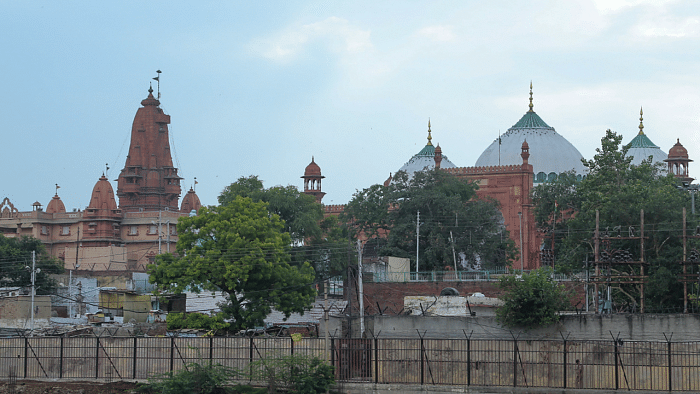
The permission given by a district court in Mathura to the state’s revenue department to conduct a survey of the Shahi Idgah mosque in the city raises the same troubling issues which were raised earlier this year in Varanasi.
The court issued its direction while hearing a new petition, filed by an outfit called Hindu Sena, which claims to represent Bal Krishna, challenging the ownership of the land on which the Idgah is built. The department has been told to complete its survey and submit its report by January 20. The Idgah is located next to the spot where Lord Krishna is considered to have taken birth. The entire matter is a replay of the events in Varanasi where a court ordered a survey of the Gyanvapi mosque, which abuts the Kashi Vishwanath temple. The survey was allowed by the Supreme Court.
The Varanasi court has also allowed worship by Hindus inside the mosque. The court’s decision has in effect acknowledged that there is a dispute about the mosque. The Mathura case is also likely moving in that direction.
It was precisely this situation that the Places of Worship Act, 1991, was intended to avoid. It had frozen the religious status of all shrines of worship as it was on August 15, 1947. The Supreme Court has endorsed this Act in its judgement in the Ramjanmabhoomi case in 2019. The Varanasi court said that the Hindu side’s suit would not be time-barred if its contention that there was worship at the masjid even before August 15, 1947, was proved.
Loopholes are sought to be found in Mathura also to revive the dispute and escalate it. The two disputes are now being used to make fresh communal mobilisations in the name of mandir-masjid disputes from a bygone era.
The lower courts have not followed the 1991 Act in letter and spirit and are not abiding by the Supreme Court’s strong endorsement of it. The court had said that the “Act had imposed a non-derogable obligation towards enforcing our commitment to secularism” and was intended to protect the secular feature of the polity. It is wrong to subject the 1991 Act to fresh interpretations to take political advantage of the uncertainty and confrontation that result from the new claims. It should also be recalled that those who had led the Ramjanmabhoomi movement had declared that they would not lay claim to more places of worship.
Now, disputes are being raised by fringe right-wing elements and individuals allowing them to maintain an arms-length policy and deniability. It is unfortunate that the government has not made its position clear on the matter. The Supreme Court should ensure that judicial avenues are not misused for partisan and disruptive social and political purposes.